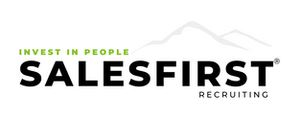What is the Proper Amount of Stress for a Sales Professional Who Puts Their Career First?
"Stress is not what happens to us. It's our response TO what happens. And RESPONSE is something we can choose." – Maureen Killoran
Stress in the sales profession is everywhere, but it can be both a motivator and a source of burnout. For those who are laser-focused on their careers, finding the right balance between productive stress and overwhelming pressure is essential. Here’s how sales professionals can harness stress to boost their careers without letting it take over their lives.
Understanding Stress in Sales
Stress is our body's way of responding to challenges, and it comes in two main types: eustress and distress. Eustress is the kind of positive stress that motivates and enhances performance, while distress is the negative stress that can lead to burnout and other health issues.
Sales professionals face unique stressors every day. Whether it’s hitting sales targets, dealing with fierce competition, or managing client expectations, the pressure can be intense. This constant push to outperform can be beneficial, but only if managed correctly.
Moderate Stress vs Excessive Stress
A certain amount of stress is actually very good for you. Known as eustress, this type of stress can drive you to achieve your goals and stay focused. It’s that extra push that helps you close deals, meet your targets, and live a satisfying life with the people you care about. Many believe that life is about the journey, not just the destination. Without stress, it would be difficult to look back and feel a sense of pride in what you’ve accomplished. Overcoming stressful situations builds self-esteem and character, making you stronger and more resilient. The challenges you face and conquer along the way shape who you are and prepare you for future success.
However, it’s crucial to recognize when stress becomes too much. Excessive stress can show up in many ways, both physically and mentally. You might experience fatigue, headaches, or sleep problems. Mentally, you could feel anxious, irritable, or find it hard to concentrate.
When stress becomes overwhelming, it can negatively impact your job performance. You might start missing targets, making poor decisions, and feeling less satisfied with your job. Personal relationships and overall well-being can also take a hit.
Finding the Right Balance
So, how do you find the right balance? First, regularly assess your stress levels. There are various tools and apps available that can help you monitor your stress. Keeping a stress diary can also help you spot patterns and identify triggers.
Next, incorporate stress management techniques into your routine. Effective time management, regular exercise, and mindfulness practices can all help reduce stress. Setting realistic goals and maintaining a healthy work-life balance are also key strategies.
Organizational Support
Employers play a critical role in helping their sales teams manage stress. Creating a supportive work environment, recognizing achievements, and providing resources can make a big difference. Many companies offer programs like Employee Assistance Programs (EAPs), stress management workshops, and wellness initiatives. Encouraging open communication about stress and mental health can also foster a healthier workplace.
Additional Resources
Stress is an unavoidable part of being a sales professional, but it doesn’t have to be a negative force. Learn the difference between productive and harmful stress, recognizr the signs of excessive stress, and use effective stress management techniques. This is the way to achieve long-term success without compromising your health. Take the time to reflect on your stress levels, seek balance, and remember that managing stress is an ongoing process.

